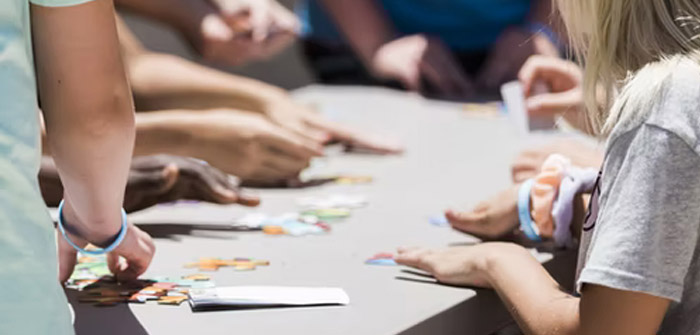Most people work from their home or a cubicle in an office. But the problem comes when one has kids at home. They can easily distract you when trying to fight for your attention.
Jungling between work and your family can be a great huddle. It may mean sacrificing part of your sleep just to get things done.
You probably already know the importance of getting enough sleep and eating healthy food. You may also have heard about exercising but do it regularly?
Well, no matter how hard you try to do these things, the chances are that stress will catch up on you sooner or later. This is why employees need to add some fun to their jobs.
And when we say Fun, we don’t mean raking leaves from the backyard or making jam from scratch. We’re talking about activities that can “inspire” you to work better.
Here are five suggestions for in-office educational games that can help you stay productive:
1. Word game
A word game is a great way to spend half an hour with your co-workers. All you need for this are some paper and pens, or blank cards if you have no writing tools on hand.
Start by picking one person first, then give them the papers/writing utensils.
The organizer will divide the entire room into two teams—one team will be on one side of the room while another on the other.
They will then pick a topic—you can use seasonal topics like “summer,” “winter,” “spring,” etc.—and ask members from each team to write down as many words related to an assigned topic within 5 minutes.
After five minutes are up, stop the clock and see which team wrote the most words.
The game begins again, but instead of picking a topic, ask members to write down antonyms (opposites) related to the topic given. Continue until you run out of topics.
According to Jason Walker of GamesQuarium, this game is so crucial as it boosts the intellectual activity of kids.
2. Scavenger hunt
A scavenger hunt is another fun-filled activity that can get your brain working overtime! Grab any paper or writing utensils—like the ones used in word games—and divide your whole office into two teams before proceeding with the game.
Instead of a word game, each team has to be sent off on a scavenger hunt this time. Members need to return to the primary office with certain items within 5 minutes—items related to a topic given by the organizer.
3. Team puzzle
A team puzzle is akin to a group story writing activity that can help you with problem-solving skills and creativity. Divide your entire office into two teams and pick one team leader from each group. Give both teams an equal amount of paper and pens or cards.
Ask them to list down things that they’d like for their boss to acquire for them, such as better working conditions, higher pay, etc. The groups have 5 minutes to come up with a list. After that, the team leaders will then combine their lists to form one. The rest of the teams must guess what both lists have in common.
4. Word search
A word search is another way to make your office more productive. Give each member a sheet of paper and ask them to write down any three-letter words they know for 10 minutes or however long it takes them to fill up an entire page.
Stop after 10 minutes and tell members to count how many words they wrote on their sheet. The team with the most number of words wins. Ask other teams if they want you to provide sheets similar to theirs or let them do their counting.
You can also use blank cards if you have enough scratch papers on hand.
5. Mind mapping story
A mind map is a great way to ensure that you will not forget important information. For this activity, you need blank cards or sheets of paper and writing utensils.
Give all members of your office blank cards and ask them to draw a shape somewhere on the sheet of paper—like a diamond, star, etc. You should do this for 10 minutes or until they run out of space on their sheets.
After drawing shapes on the card or pages, have team members rewrite critical points inside a larger shape drawn on another piece of paper using the first one as reference. It becomes an overview, wherein you can check if everyone has included critical points in the team story.
After that, have each member read what they’ve written in a bid to convert it into an exciting team story.
Afterward, go over the points in the story so that everyone can remember them better.
This activity will help you boost your creativity, memory, and concentration. It is also an excellent way to evaluate yourself against others.
Having Fun Doesn’t Equal Losing Focus.
Educational games are also perfect for helping your colleagues retain the information they’ve recently learned or improve their memory skills.
It may initially be challenging to focus on learning something new, but educational games make the process more engaging and fun with the right balance of competition between teams.
Because it’s both competitive and engaging, even players who were never interested in studying will show interest since they now have a chance to win over their co-workers.
It doesn’t matter what age you are—studying can always feel like hard work because no one likes being told.
However, with educational games that encourage creativity and help sharpen memory skills, there’s more emphasis on doing things rather than following orders. This means you’re more likely to remember what you learn because it’s more personal and meaningful.





